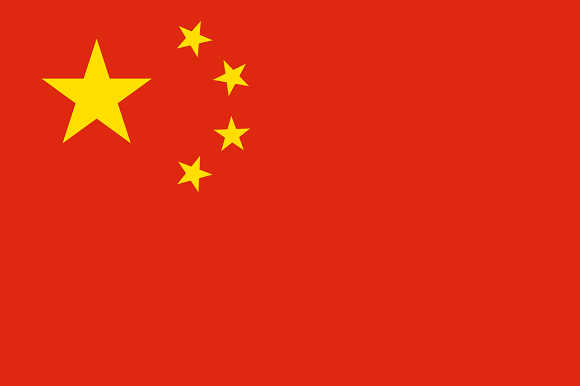Turns out the controversial posters aren’t quite as nationalistic as their creators likely intended them to be.
Recently, a bit of controversy erupted on Twitter in Japan over a mysterious poster that witnesses reported seeing at various spots in the city of Kyoto. On the poster, large text announces “I’m glad I’m Japanese,” next to a partial recreation of the Japanese flag and a mostly black-and-white image of a smiling woman whose girlishly blushing cheek provides another visual metaphor for the flag,
“Let’s raise the Hinomaru [Japanese flag] with pride in our hearts,” the poster implores. Many Japanese online commenters, however, instead felt a mixture of embarrassment and exasperation. To them, the poster, which makes no mention of who created it and is apropos of no international event or competition, is needlessly nationalistic/ethnocentric posturing, and a poor message to broadcast in a city that’s often one of the very first places the people from the rest of the world visit when travelling in Japan.
https://twitter.com/hanenohaetashra/status/857606205216141312Yet it turns out that for all of its native pride, the poster actually a fine example of internationalism, though likely not on purpose. As mentioned, the poster contains the image of a smiling young women. With her lustrous jet-black hair, perfect teeth, and unblemished skin, the poster’s creators no doubt felt that her aura of humble vitality and healthy purity were the perfect visual metaphor for admirable traits of the Japanese people.
Except…that woman isn’t Japanese.
The woman’s photograph has been traced to Getty Images, where it’s credited to photographer Lane Oatey and listed as being “Produced in Beijng, China.” Of course, photography is a very globalized business, as evidenced by the non-Chinese-named Oatey working in Beijing. So is it possible that while the photo was taken in China, the model herself is Japanese?
Nope, because in looking through the image’s keywords, you’ll find “Chinese Ethnicity.” Even on the Japanese-language version of Getty Images, the keyword list includes 中国人, or “Chinese person.”
Given the poster’s use of the word “I” in declaring “I’m glad I’m Japanese,” it’s clearly presenting it as being the woman’s sentiment, so the poster’s makers either didn’t bother to read through the keywords or lifted the image from somewhere other than Getty. Either way, in their rush to trumpet their pride in being Japanese, they’ve ended up showing their admiration for the beauty of a Chinese woman at the same time.
Sources: Otakomu, Getty Images (1, 2)
Featured image: Twitter/@hanenohaetashra
Insert image: Wikipedia/Steinsplitter


 “I’m glad I’m Japanese” posters in Kyoto spark outrage among Japanese Twitter users
“I’m glad I’m Japanese” posters in Kyoto spark outrage among Japanese Twitter users Starbucks Japan unveils new sakura cherry blossom collection for hanami season 2026
Starbucks Japan unveils new sakura cherry blossom collection for hanami season 2026 One Piece creator has hidden secret of anime treasure’s identity in chest at bottom of real-world ocean
One Piece creator has hidden secret of anime treasure’s identity in chest at bottom of real-world ocean Is Tokyo Station’s startlingly expensive wagyu bento boxed lunch worth its high price?[Taste test]
Is Tokyo Station’s startlingly expensive wagyu bento boxed lunch worth its high price?[Taste test] Japan’s cherry blossom season predicted to start earlier than we’d thought, especially in Tokyo
Japan’s cherry blossom season predicted to start earlier than we’d thought, especially in Tokyo Live-action One Piece’s Luffy teaches Sesame Street’s Elmo a Japanese word for friendship[Video]
Live-action One Piece’s Luffy teaches Sesame Street’s Elmo a Japanese word for friendship[Video] KFC adds hash brown burgers to its menu in Japan
KFC adds hash brown burgers to its menu in Japan Final Evangelion movie is finally out, and we’ve seen it! Our Eva fans’ spoiler-free impressions
Final Evangelion movie is finally out, and we’ve seen it! Our Eva fans’ spoiler-free impressions The results are in! One Piece World Top 100 characters chosen in global poll
The results are in! One Piece World Top 100 characters chosen in global poll Viral Japanese cheesecake from Osaka has a lesser known rival called Aunt Wanda
Viral Japanese cheesecake from Osaka has a lesser known rival called Aunt Wanda French Fries Bread in Tokyo’s Shibuya becomes a hit on social media
French Fries Bread in Tokyo’s Shibuya becomes a hit on social media Starbucks Japan releases first-ever Hinamatsuri Girls’ Day Frappuccino
Starbucks Japan releases first-ever Hinamatsuri Girls’ Day Frappuccino Japanese restaurant chain serves Dragon Ball donuts and Senzu Beans this spring
Japanese restaurant chain serves Dragon Ball donuts and Senzu Beans this spring Japan Extreme Budget Travel! A trip from Tokyo to Izumo for just 30,000 yen [Part 1]
Japan Extreme Budget Travel! A trip from Tokyo to Izumo for just 30,000 yen [Part 1] Japan’s craziest burger chain takes menchi katsu to new extreme levels
Japan’s craziest burger chain takes menchi katsu to new extreme levels Japan Extreme Budget Travel! A trip from Tokyo to Izumo for just 30,000 yen [Part 2]
Japan Extreme Budget Travel! A trip from Tokyo to Izumo for just 30,000 yen [Part 2] Japanese drugstore sells onigiri at pre-stupid era prices, but how do they compare to 7-Eleven?
Japanese drugstore sells onigiri at pre-stupid era prices, but how do they compare to 7-Eleven? Lawson adds doughnuts to its convenience store sweets range, but are they good enough to go viral?
Lawson adds doughnuts to its convenience store sweets range, but are they good enough to go viral? Japan’s newest Shinkansen has no seats…or passengers [Video]
Japan’s newest Shinkansen has no seats…or passengers [Video] Starbucks Japan releases new sakura goods and drinkware for cherry blossom season 2026
Starbucks Japan releases new sakura goods and drinkware for cherry blossom season 2026 Foreigners accounting for over 80 percent of off-course skiers needing rescue in Japan’s Hokkaido
Foreigners accounting for over 80 percent of off-course skiers needing rescue in Japan’s Hokkaido Super-salty pizza sends six kids to the hospital in Japan, linguistics blamed
Super-salty pizza sends six kids to the hospital in Japan, linguistics blamed Starbucks Japan unveils new sakura Frappuccino for cherry blossom season 2026
Starbucks Japan unveils new sakura Frappuccino for cherry blossom season 2026 Foreign tourists in Japan will get free Shinkansen tickets to promote regional tourism
Foreign tourists in Japan will get free Shinkansen tickets to promote regional tourism The 10 most annoying things foreign tourists do on Japanese trains, according to locals
The 10 most annoying things foreign tourists do on Japanese trains, according to locals Take a trip to Japan’s Dododo Land, the most irritating place on Earth
Take a trip to Japan’s Dododo Land, the most irritating place on Earth Naruto and Converse team up for new line of shinobi sneakers[Photos]
Naruto and Converse team up for new line of shinobi sneakers[Photos] Survey asks foreign tourists what bothered them in Japan, more than half gave same answer
Survey asks foreign tourists what bothered them in Japan, more than half gave same answer Japan’s human washing machines will go on sale to general public, demos to be held in Tokyo
Japan’s human washing machines will go on sale to general public, demos to be held in Tokyo Starbucks Japan releases new drinkware and goods for Valentine’s Day
Starbucks Japan releases new drinkware and goods for Valentine’s Day We deeply regret going into this tunnel on our walk in the mountains of Japan
We deeply regret going into this tunnel on our walk in the mountains of Japan Studio Ghibli releases Kodama forest spirits from Princess Mononoke to light up your home
Studio Ghibli releases Kodama forest spirits from Princess Mononoke to light up your home Major Japanese hotel chain says reservations via overseas booking sites may not be valid
Major Japanese hotel chain says reservations via overseas booking sites may not be valid Put sesame oil in your coffee? Japanese maker says it’s the best way to start your day【Taste test】
Put sesame oil in your coffee? Japanese maker says it’s the best way to start your day【Taste test】 No more using real katana for tourism activities, Japan’s National Police Agency says
No more using real katana for tourism activities, Japan’s National Police Agency says